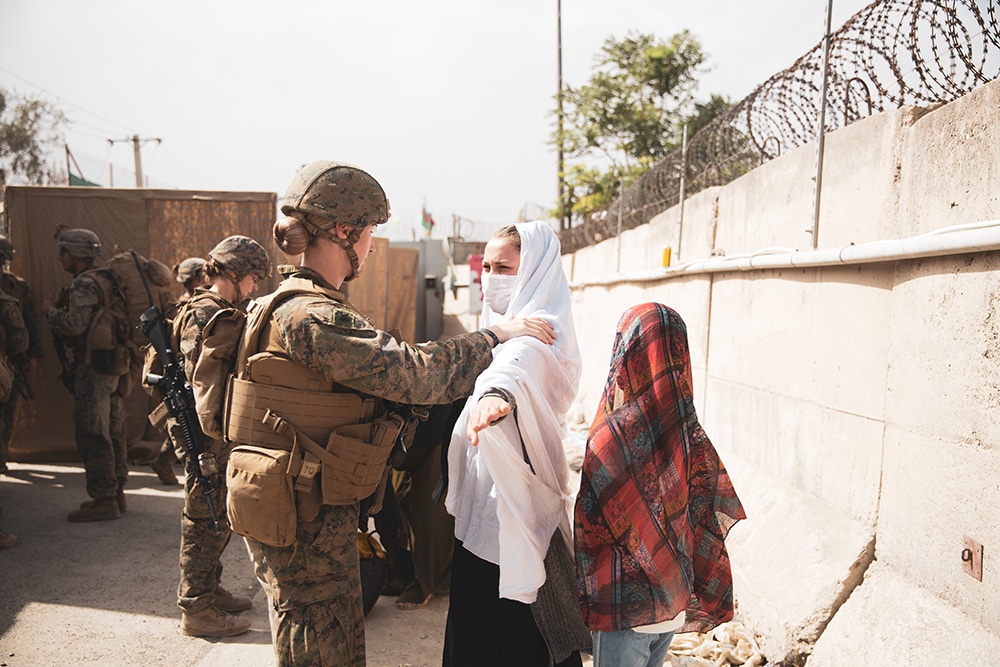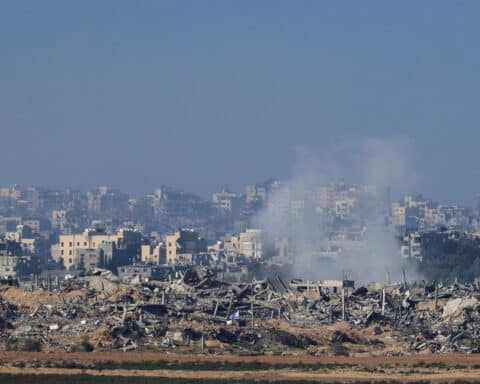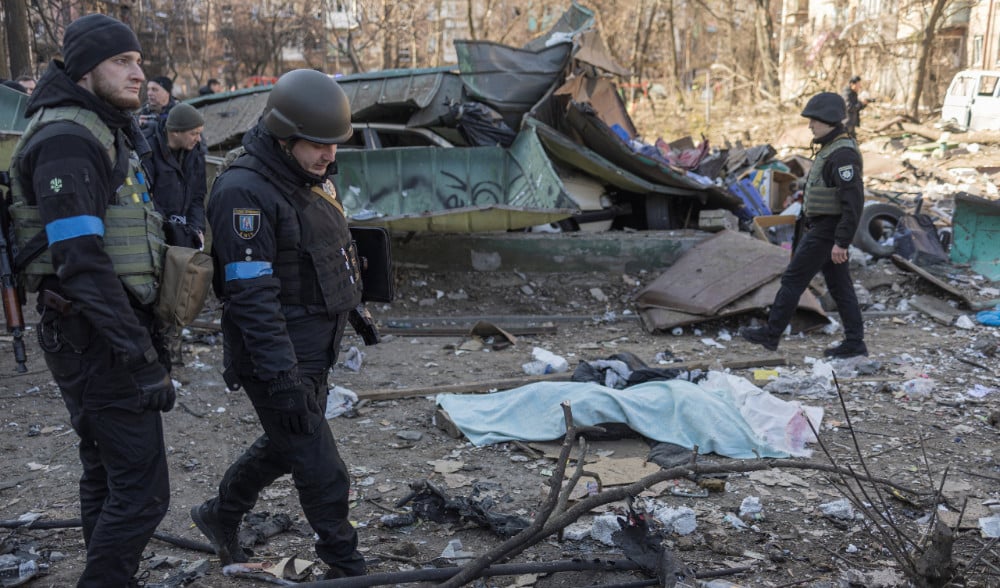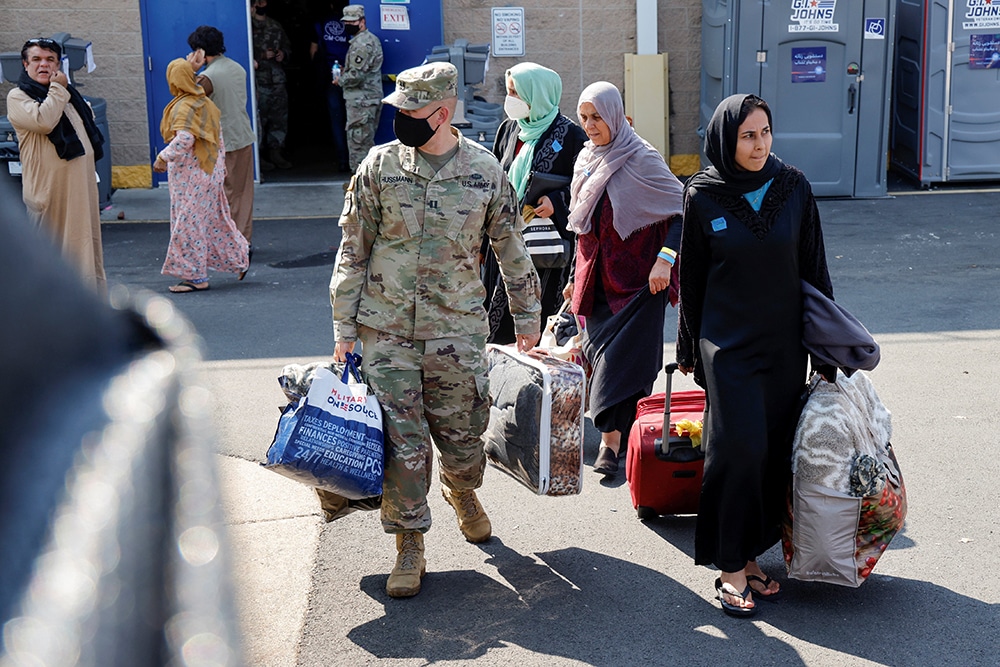In August, as the deadline for the final U.S. withdrawal from Afghanistan approached, the news was filled with horrifying images and stories of both Afghan allies and U.S. citizens in danger of being left behind. The Taliban — whom U.S. forces had battled throughout two decades of war, but who now were the only other party to the agreement (negotiated by the Trump administration and adhered to by the Biden administration) setting the deadline for U.S. withdrawal — swept into Kabul much more rapidly than U.S. intelligence agencies had predicted. The U.S.-supported president of Afghanistan fled the country, the U.S.-trained Afghan army scattered, and the Taliban, on their march to Kabul, released many political prisoners, including some who promptly declared their enmity not only to the United States and its Afghan allies but to their Taliban liberator. These prisoners formed the core of ISIS-K, which claimed responsibility for an explosion at the Kabul airport that killed more than 150 people, including 13 Americans attempting to leave the country.
After 20 years, over $2 trillion, and more American lives lost than in the terror attacks of Sept. 11, 2001, this is not the way that anyone intended for this war to end. And as soon as it became clear that the U.S. withdrawal would be anything but peaceful and orderly, everyone began to ask what went wrong. Most pointed fingers at political opponents, blaming either the current president or the previous one for creating the conditions that would remind so many of the final departure of the United States from Vietnam.
Few were willing to acknowledge that the seeds of the events of August 2021 were sown in October 2001, when the United States, assisted by the United Kingdom, invaded Afghanistan in retaliation for the Sept. 11 attacks by al-Qaida, which had found safe harbor under the Taliban regime.
In contrast to the months leading up to the Gulf War in January 1991 and, later, the Iraq War in March 2003, Vatican attempts to dissuade the U.S. government from extensive military action in Afghanistan were quiet and private. This was largely because a case could be made on the basis of the Church’s just-war theory for limited action aimed at bringing Osama bin Laden and other al-Qaida leaders to justice for their role in planning the attacks. But the decision to overthrow the Taliban-led government of Afghanistan, and to use American military force and an extended occupation to install a government allied with the United States and to engage in “nation-building,” took the U.S. action in Afghanistan into territory similar to the Gulf War and the later Iraq War.
Given that reality, the events of August 2021, while shocking, should not have been surprising. Going all the way back to the lead-up to the Gulf War, some have tried to reframe the Church’s just-war theory to demand military action, rather than to allow it only under strictly limited circumstances, tying such action to the theoretical prevention of greater evils. The decision to expand military action in Afghanistan was presented in just that way. In order to prevent future attacks on the United States (the argument went), the Taliban government had to be removed from power, and American-style political institutions and cultural norms had to be imposed on the Afghan people.
The only problem, as Cardinal Joseph Ratzinger (later Pope Benedict XVI) would point out in September 2002 regarding similar justifications for the coming war in Iraq, is that the “concept of a ‘preventive war’ does not appear in the Catechism of the Catholic Church.”
And with good reason. Even the use of force in defense is allowed by Catholic just-war theory only because of our fallen nature. Original sin warped the world, and sometimes the use of force is justified to deal with the consequences. If we convince ourselves that war can be used to create something good, however, then we run the risk of thinking that secular military action can substitute for the prayer, fasting, charity and conversion that alone can counteract the deadliest effects of original sin and build the kingdom of God.
The Catholic historian John Lukacs once described the United States as “a country where original sin had become unthinkable.” That was true from the beginning in our approach to Afghanistan. But, as Lukacs added, “The trouble with the unthinkable is that sometimes it must be thought about.” That should be the real lesson we draw from our defeat in Afghanistan.
Our Sunday Visitor Editorial Board: Gretchen R. Crowe, Scott P. Richert, Scott Warden, York Young





